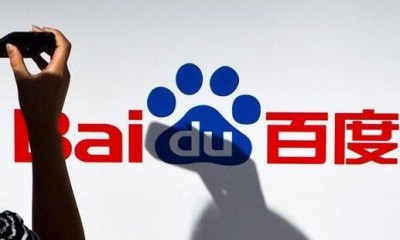The war in the "6.18" mid-year promotion has burned from China to overseas, and e-commerce platforms have gone overseas to expand overseas markets. On June 12, Tmall Supermarket officially launched the "Tmall Go Over" project, gradually promoting the Tmall model to the retail network established by Alibaba in Southeast Asia. Just one day ago, JD.com also announced plans to invest in Thailand to expand JD.com's overseas operations outside Indonesia. In the view of industry insiders, expanding overseas markets is a new breakthrough that major e-commerce platforms are looking for when the domestic market is gradually becoming saturated. Globalization will be a key strategy for the development of domestic e-commerce platforms, and at the same time, platform resources will also complement each other.

The mid-year promotion is escalating
Whether it is the mid-year promotion or the end-of-year promotion, the competition between Alibaba and JD.com has been in a stalemate. Now, as JD.com once again increases its investment in overseas markets, the smell of gunpowder between the two sides has also spread from domestic to overseas. On June 10, JD.com was the first to announce its expansion of overseas markets during the "6.18" promotion. Liu Qiangdong, founder, chairman of the board and CEO of JD.com Group, announced to the public that JD.com is planning to invest in Thailand to expand JD.com's overseas business outside Indonesia, but Liu Qiangdong did not disclose the specific amount of funds to be invested in Thailand. At the same time, Beijing Business Daily reporters found that JD has recruited Russian interns for a week and may restart JD's cross-border e-commerce business in Russia.
Not only JD.com has focused on overseas markets, Tmall also officially launched the "Tmall Go Over" project on June 12. The project will use Tmall as the main force, with the help of 2 billion products from Alibaba's e-commerce platform, as well as commercial facilities in transactions, payments, logistics, marketing, data, technology, etc., to promote the Tmall model to international and regional markets involving Southeast Asia, India and other regions involved in Alibaba's retail industry. It is understood that Tmall has started incubating the "Tmall Go Over" project since September last year, and currently Tmall, Taobao merchants and 1.2 billion products cover more than 200 countries and regions.
In addition, Tmall also regards Hong Kong as one of the "Tmall Going Overseas" projects. The Hong Kong Station of Tmall Supermarket, which began trial operation in April this year, officially opened on June 13, and mainly promotes time-honored brands and special products in the mainland. From the perspective of business format, Tmall Supermarket will include the products and resources of large supermarkets such as Metro, and will also integrate more than 3,600 stores of Lianhua Supermarket in China.
In order to accelerate the implementation of the overseas travel plan, Tmall will further improve its logistics. Hong Kong consumers can enjoy next-day delivery services for products purchased by Tmall Supermarket. It is understood that Tmall Supermarket has set up about 40 pickup points with Cainiao Alliance in Hong Kong and provides home delivery services. Cainiao will also upgrade its original collection model and adopt a delivery plan for shipment in nearby separate warehouses. Overseas delivery scenarios will gradually adopt the above model. The e-commerce timeliness in Hong Kong, Macao, Taiwan and Southeast Asia may be increased from 8 days to next-day delivery and next-day delivery. The competition between Alibaba and JD.com during the "6.18" promotion is no longer limited to domestic markets, and they are targeting overseas markets.
Continuous competition for overseas markets
In fact, the "6.18" mid-year promotion is just a concentrated display of the overseas business of e-commerce platforms. The Southeast Asian market has become the place where Alibaba and JD.com are confronting each other, and they are constantly increasing their investment. In April last year, Alibaba planned to acquire a controlling stake in Southeast Asian e-commerce platform Lazada for about US$1 billion, and Lazada has also become a springboard for Alibaba to enter the Southeast Asian market. Just in October 2015, JD.com had already launched the domain name JD.id in Indonesia to build a JD Indonesia station and established warehousing in Southeast Asia, focusing on the development of local cross-border e-commerce business. Now Indonesia has become JD.com's main position in Southeast Asia.
Cao Lei, a researcher at the China E-Commerce Research Center, told the Beijing Business Daily reporter that for domestic e-commerce platforms that are planning global development, targeting the Southeast Asian market is a "curve to save the country". The European and American e-commerce markets have basically been divided by Amazon and eBay, while Southeast Asia is China's closest neighbor, with similar consumption habits to the domestic market, underdeveloped economy, and relatively backward development of e-commerce. Therefore, domestic e-commerce continues to tap the potential of this part of the market.
In recent years, Alibaba and JD.com have been escalating overseas competition. In mid-2015, under the trend of Korean trend, Alibaba and JD.com successively established Korean Pavilions. In early 2015, Liu Qiangdong personally led the investment platform for the Korean Pavilion, and South Korea became the second stop in JD.com's global shopping after France. Subsequently, in the middle of the same year, Alibaba established a National Pavilion on the Tmall shopping platform, and integrated multiple core businesses such as Tmall, Cainiao Network, and Alipay.
In addition to the above markets, neighboring Russia is also a place where Alibaba competes with JD.com. As early as June 2015, JD.com took Russia as the first step to expand overseas markets and officially launched the cross-border e-commerce export platform JD.com Global Sales Station, which mainly serves the Russian market and exports Chinese brand products. For this reason, JD.com also launched after-sales services such as 30-day return and exchange. Although the Russian business has not received more attention since then, JD.com has recently begun to recruit Russian interns. Compared with JD.com, Alibaba has made an earlier layout in Russia. In 2012, Alibaba started to cooperate with Qiwi Wallet, a well-known Russian payment tool. Russian users can purchase Chinese products from Alibaba through Qiwi Wallet. The above market is just the tip of the iceberg for Alibaba and JD.com to compete for overseas markets. Against the backdrop of the domestic market becoming saturated and the demographic dividend gradually disappearing, both sides are exploring new focus points.
Globalization is aligned with good fortune and misfortune
The domestic market is becoming saturated, and domestic e-commerce platforms urgently need to expand their development space. Regarding the global layout of domestic e-commerce, Wang Chengrong, a special researcher at the Beijing Business Research Institute and dean of the Beijing Finance and Trade Vocational College, told Beijing Business Daily reporters that on the one hand, the internationalization of domestic e-commerce has accelerated and the development of Internet technology has allowed competition between businesses to enter a competitive pattern without boundaries and radius, promoting the circulation of products, information, data, etc., and the disappearance of logistics and geographical boundaries. On the other hand, the competition among domestic e-commerce is becoming increasingly fierce. Under factors such as the domestic market becoming saturated and the demographic dividend is gradually disappearing, domestic e-commerce platforms need to release resources, concentrate on expanding overseas markets and strengthening brand influence. The parallel development of domestic and foreign countries has become an inevitable choice and development trend for e-commerce platforms.
Although parallel development at home and abroad is an inevitable choice for domestic e-commerce platforms, it does not mean that resources can be connected to each other. E-commerce analyst Li Chengdong said that the platform "going out" first must face the re-establishment of end consumers, and brand recognition needs to be cultivated for a long time and will still be a well-known challenge in the short term. At the same time, domestic e-commerce sales of counterfeit goods have always been controversial, and it is difficult to reshape the brand influence. Faced with overseas markets, the logistics system will also start from "zero", and rebuilding logistics will bring greater operational pressure.
In Wang Chengrong's view, whether the internationalized domestic e-commerce platform can overcome multiple barriers is the key. If the platform's development overseas can continue its domestic resource advantages, the difficulty of development will be alleviated. However, if you want to gain recognition from the overseas market, you must break through multiple obstacles such as trade barriers, policy barriers, legal barriers, and credit system. Funding is not a well-known problem.
A person in charge of a cross-border e-commerce company named Pan is cautious about going overseas. The person in charge bluntly stated that many products on domestic e-commerce platforms "going overseas" to sell without even understanding the cultural differences, and they are not qualified to be cannon fodder.
In addition, comprehensive platforms also face the influence of small and beautiful vertical cross-border e-commerce platforms. Li Chengdong said that the small and beautiful cross-border e-commerce platform has a small scale and high gross profit. It focuses on more concentrated areas and has more obvious relative advantages. However, the comprehensive platform focuses on the establishment of long-term brand effects and can bear the pressure on revenue and operation in the short term. The positioning of both parties is different.
It is understood that there are more than 5,000 cross-border platform enterprises of various types in my country, and more than 200,000 foreign trade enterprises conducting cross-border e-commerce through the platform. The Ministry of Commerce predicts that China's cross-border e-commerce import and export trade volume will increase to 8 trillion yuan in 2017. In the next few years, the proportion of cross-border e-commerce in China's import and export trade will increase to 20%, with an annual growth rate of more than 30%.
Thank you for your attention and support to Laogao Crown Club . Please indicate the source of the reprinting website www.shxuanming.net
Click to register to apply to join the well-known e-commerce network - Laogao Crown Club. Any merchants from all over the country, Tmall merchants, Taobao Crown Stores, Jinguan Stores, and other e-commerce platform merchants can apply to join!



![#Laogao E-commerce Newsletter# [E-commerce Evening News on March 30]](/update/1634637709l862528272.jpg)



 EN
EN CN
CN
